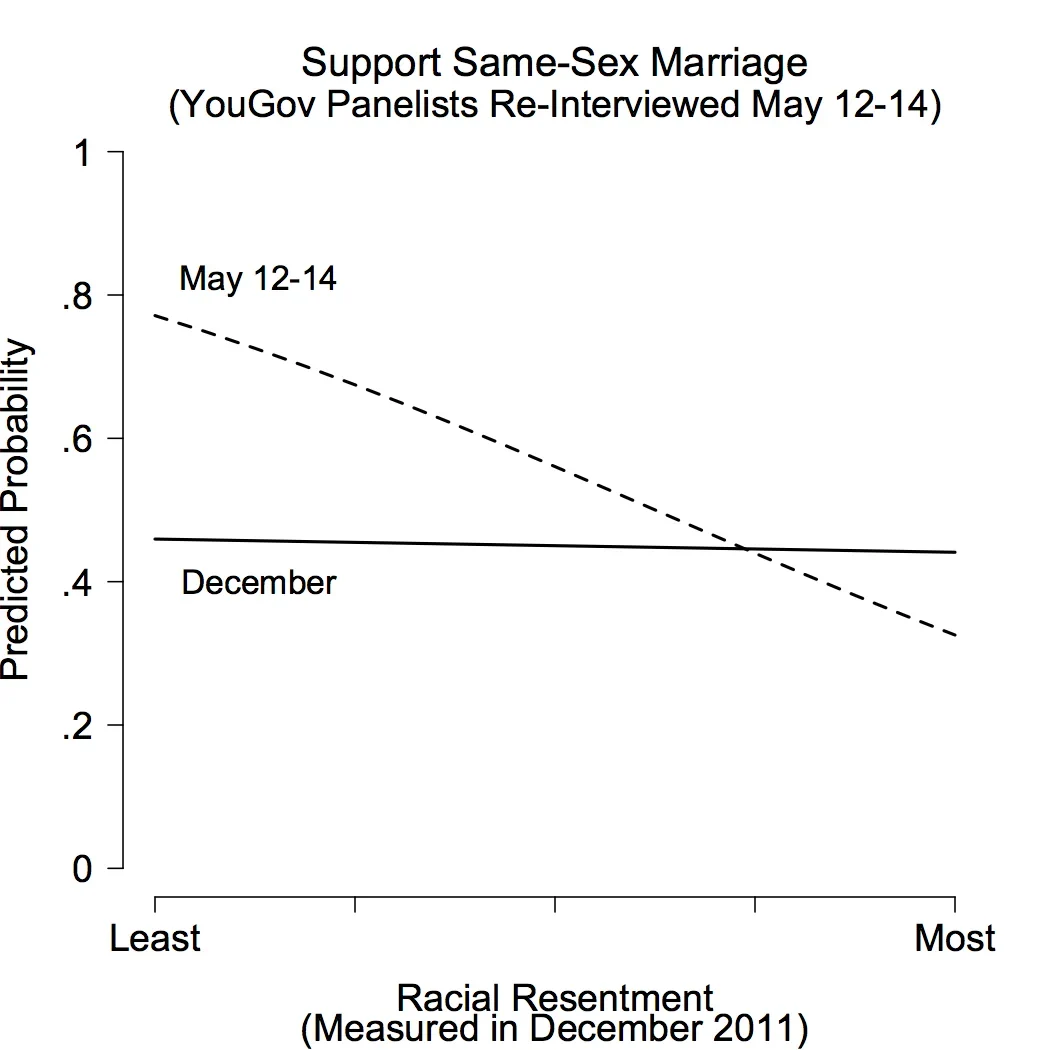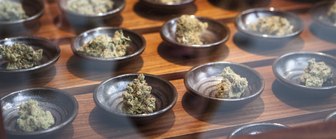As discussed in a previous post, several recent studies show that political evaluations are increasingly polarized by racial attitudes after becoming associated with Barack Obama. Indeed, health care opinions, tax policy preferences, approval of Supreme Court nominees, midterm vote choices, party identification, and even impressions of Portuguese Water Dogs, have all become more racialized after being naturally and/or experimentally connected to the president. We refer to this phenomenon as the spillover of racialization.
One might expect, then, that racial attitudes would be an increasingly important ingredient of public opinion about same-sex marriage in the wake of Obama’s much publicized announcement in support of same-sex marriage. After all, this story dominated the national headlines.
Fortunately, some unique survey data collected by YouGov last week allows us to test that expectation. The poll re-contacted a nationally representative sample of 1000 individuals who were previously interviewed in December 2011. Since the prior 2011 survey measured both racial resentment (see questions here) and support for gay marriage, we can effectively determine whether racial attitudes became a more important determinant of public approval of same-sex marriage after the president’s endorsement of it than they were beforehand.
The figure below shows that racial attitudes are, in fact, a much stronger predictor of gay marriage support now than they were back in December. After controlling for party identification, ideological self-placement, and thermometer ratings of homosexuals, the display shows that moving from least to most racially resentful had virtually no impact on support for gay marriage in 2011. With these three control variables held constant, though, that same change in racial conservatism was associated with a 45 percentage point decrease in gay marriage approval among the exact same white respondents who were re-interviewed last week.

Consistent with a prior analysis of these data by Lynn Vavreck and Ryan Enos, the graphic indicates that racial liberals were especially likely to shift towards the president’s position. The upshot is that gay marriage approval increased slightly (2 percentage points) among white respondents who were interviewed in both December and May. Also consistent with some previous spillover of racialization findings, the effect of such non-racial factors as partisanship and ideology did not increase after this policy was visibly tied to the president (see: here and here; though also see here).
The sharp increase in the effects of racial attitudes following Obama’s endorsement is somewhat surprising. Americans’ positions on moral issues like gay marriage tend to be more stable than their preferences about fiscal policies like health care reform, thereby leaving less room for the president to influence public opinion. If anything, then, these results speak to the unique potential of Barack Obama’s positions to polarize public opinion by racial attitudes.









